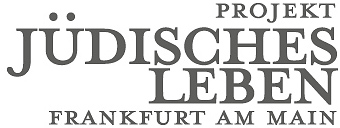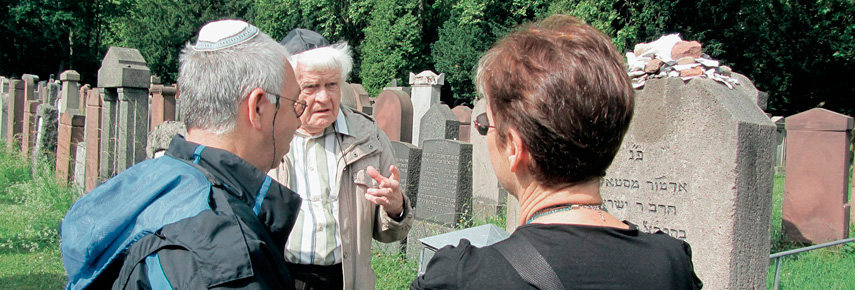In October 1920 the two businessmen purchased the empty building belonging to the Klostermühle (Monastry mill) in Mümling-Grumbach near Höchst (Odenwald), where the production began. The expanding business soon started to burst at the seams, resulting in the purchase of a further mill in the Sandbach district, known as the Neustädter Spatmühle, where further buildings were erected. At first the production was split between both locations, however following the expansion of further buildings in 1926 was completely transferred to Neustadt. The ongoing development of the production processes resulted in the employment of additional technicians and chemists. By 1937 the successful recycling company employed 435 blue collar and 32 white collar staff.
Aryanization
The beginning of the Nazi era saw a permanent increase of pressure on the two Jewish entrepreneurs, “partly because our suppliers and customers were being incited against us by the NSDAP, and partly because we were only given access to certain raw materials either in small quantities or not at all. We were permanently the target of harassment.“ This was the statement of Jakob Hirschberger in the civilian tribunal (Spruchkammerverfahren) against Wilhelm Kaus, the subsequent purchaser of the company. (HHStAW, printed in Wittrock: 44 ff, as well as the following quotes)
At the beginning Strauss and Hirschberger attempted to withstand the hostility, as they did not simply want to give up their life’s work. The pressure however increased. The workers council, for example, threatened them with the “wrath of the masses.” As the two businessmen feared slander and arrest, they began in 1936 to seriously consider the sale of the business. One of the interested parties was Wilhelm Kaus, who was unknown to them as he had not previously been active in this line of business. Kaus was assisted by Emil Höhne, an economic leader and consultant for the town of Hanau, who in turn assured him of support by the NSDAP. Höhne carried out an intensive audit of the company. As the negotiations dragged on, Strauss and Hirschberger decided at the end of 1937 to start looking for other potential purchasers. At this point Kaus and Höhne told them that they would receive a firm offer. When they presented them with it Strauß and Hirschberger immediately considered it to be totally unacceptable. Simultaneously they were subjected to massive pressure, for example with the threat of sabotage, if they did not accept. “These threats hit us like a hammer,” said Hirschberger in his statement in 1948. Under these circumstances the only chance they saw was to improve the terms of sale as far as possible. Finally they were forced to sell their company far below its actual value. 2/3 of the amount was due immediately, the remainder in installments as agreed. One term of the contract specified that they would continue to provide their services until the end of 1939 “in order to acquaint the purchaser with the business and to smoothen the relationships”, for which they were to be compensated. In reality Kaus did not pay the full amount with the argument that there had been claims. Contrary to the terms of the contract, Jacob Strauss was dismissed in June 1938 and his remuneration ceased. Jakob Hirschberger was still employed until the end of September. Finally, at the beginning of November 1938 and under threat of being sent to a concentration camp, Strauss and Hirschberger saw no option but to agree to a compromise.
A few days later, during the November pogrom, they were faced with further threats but were fortunately able to count on the loyalty of previous employees. In understandable fear of arrest Hirschberger was hidden by the company’s driver, whilst Jacob Strauss found a hiding place in the rear office of the Gummiwerke Odenwald in the Mainzer Landstrasse.
At the end of 1938 both previous owners of the company were finally forced to sign their agreement to the removal of their names from the registrar of companies, although Jakob Hirschberger was in hospital at the time.
“Sicherungsanordnung” (Safeguard order)
In addition to the terms of the contract, which amounted to blackmail, Jacob Strauss was also subject to harassment by the tax authorities. “A letter from my partner Strauss to Höhne dated 18th January 1939 confirms the predicament in which we found ourselves… Despite the a.m. events and the blackmail by Höhne for Kaus, I once again kindly request you to send me certificate to be presented to the Inland Revenue.”
Strauss needed the a.m. certificate urgently because the Inland Revenue were insisting on tax due for the total amount agreed in the contract. Due to Kaus’ refusal to confirm the arbitrary price reduction and discharge, Strauss was unable to provide proof to the tax authorities.
At this point in time both partners were unable to freely access their funds. Since July 1938 a “Sicherungsanordnung” (safeguard order) had robbed them of the capability to access their finances and they were permanently faced with attempts to commit crimes. “As the Jews are suspected of trying to emigrate, I request the safeguarding of the a.m. funds”, wrote the “Zollfahndungsstelle” (Customs Investigation department of the “Devisenstelle” (currency authorities)) (HHStAW) . In his despair Jacob Strauss looked for ways to clarify the unresolved issues, in order to be able to leave the country.

